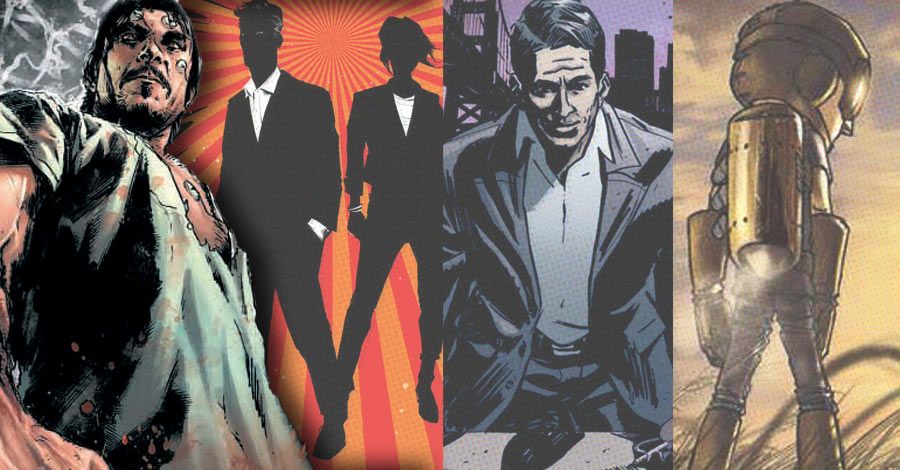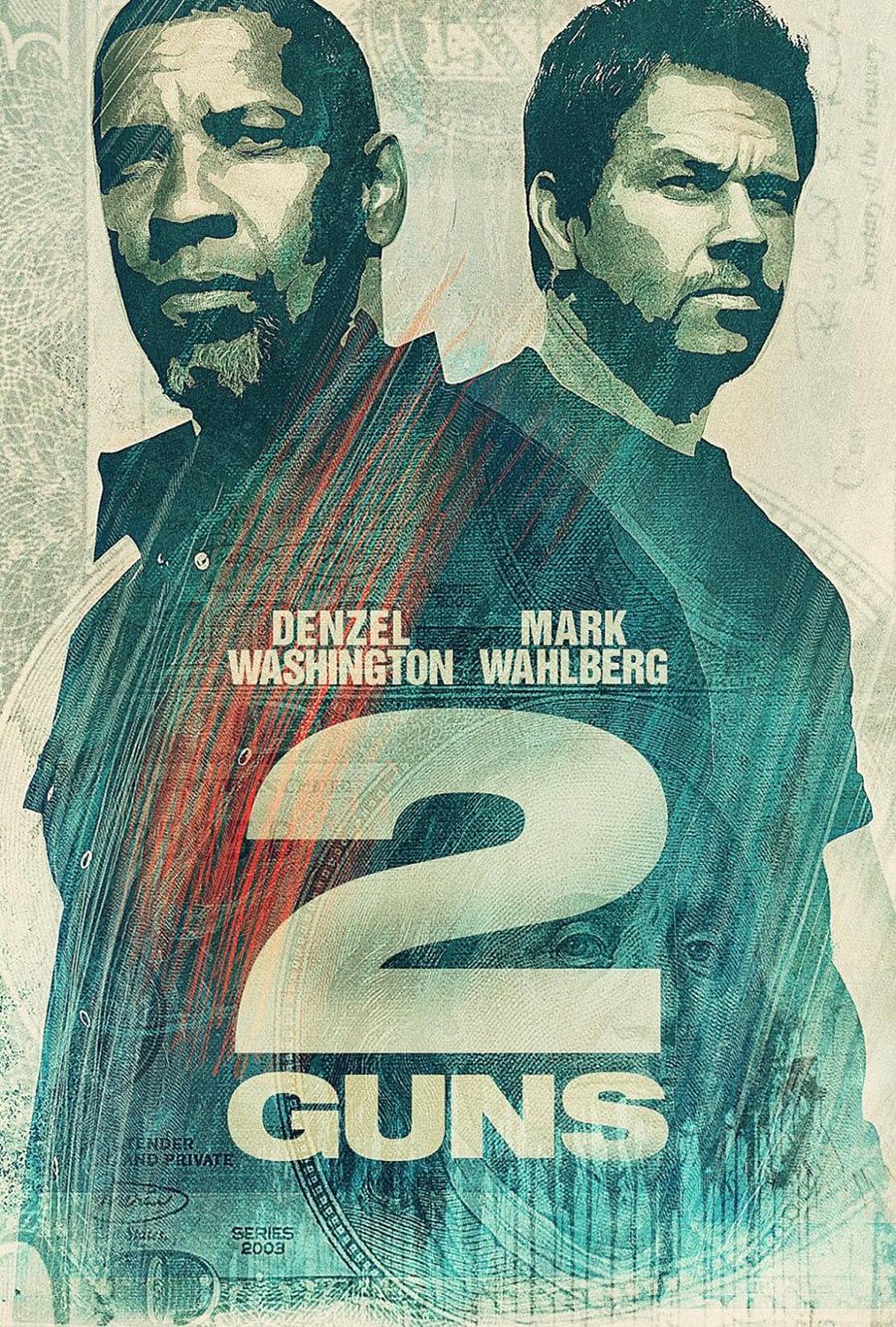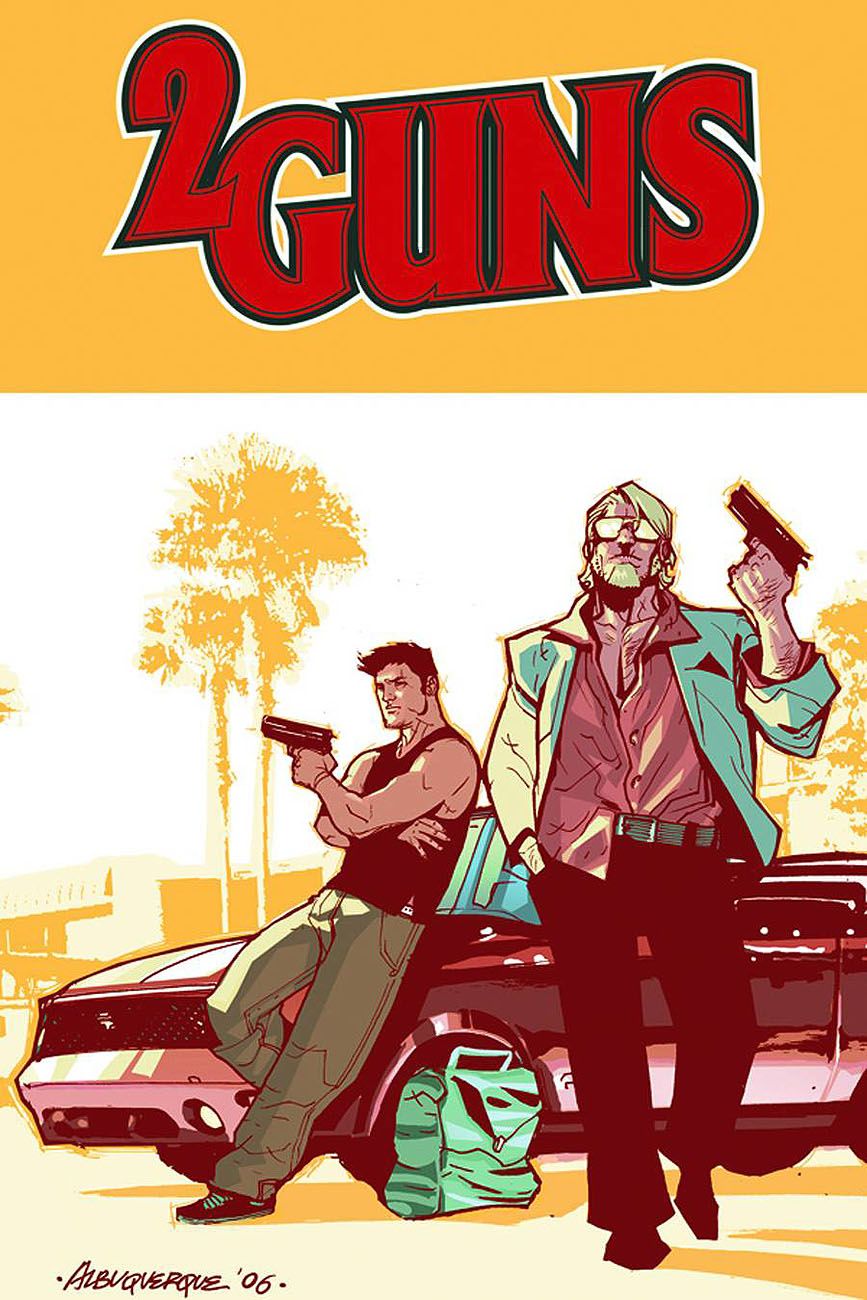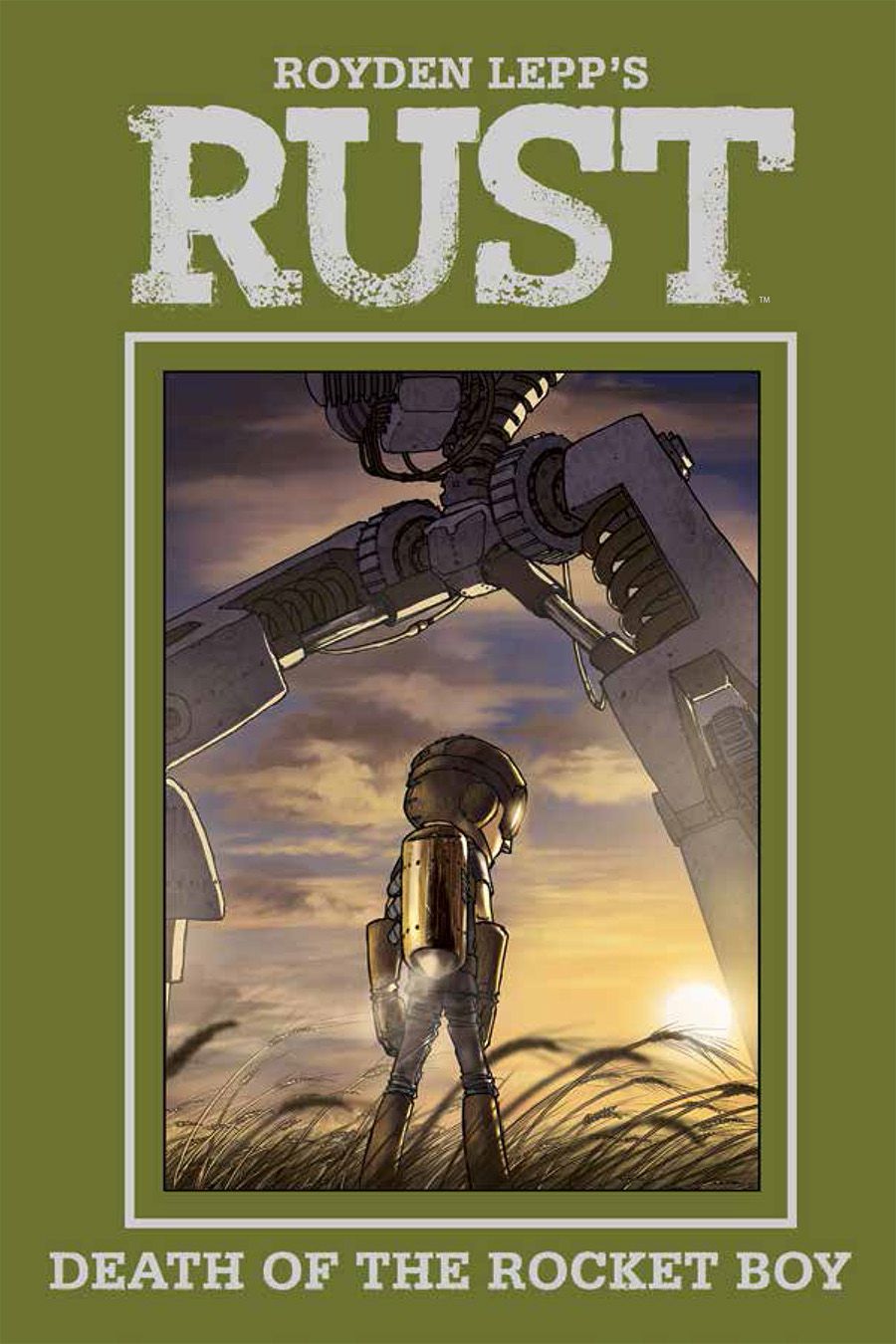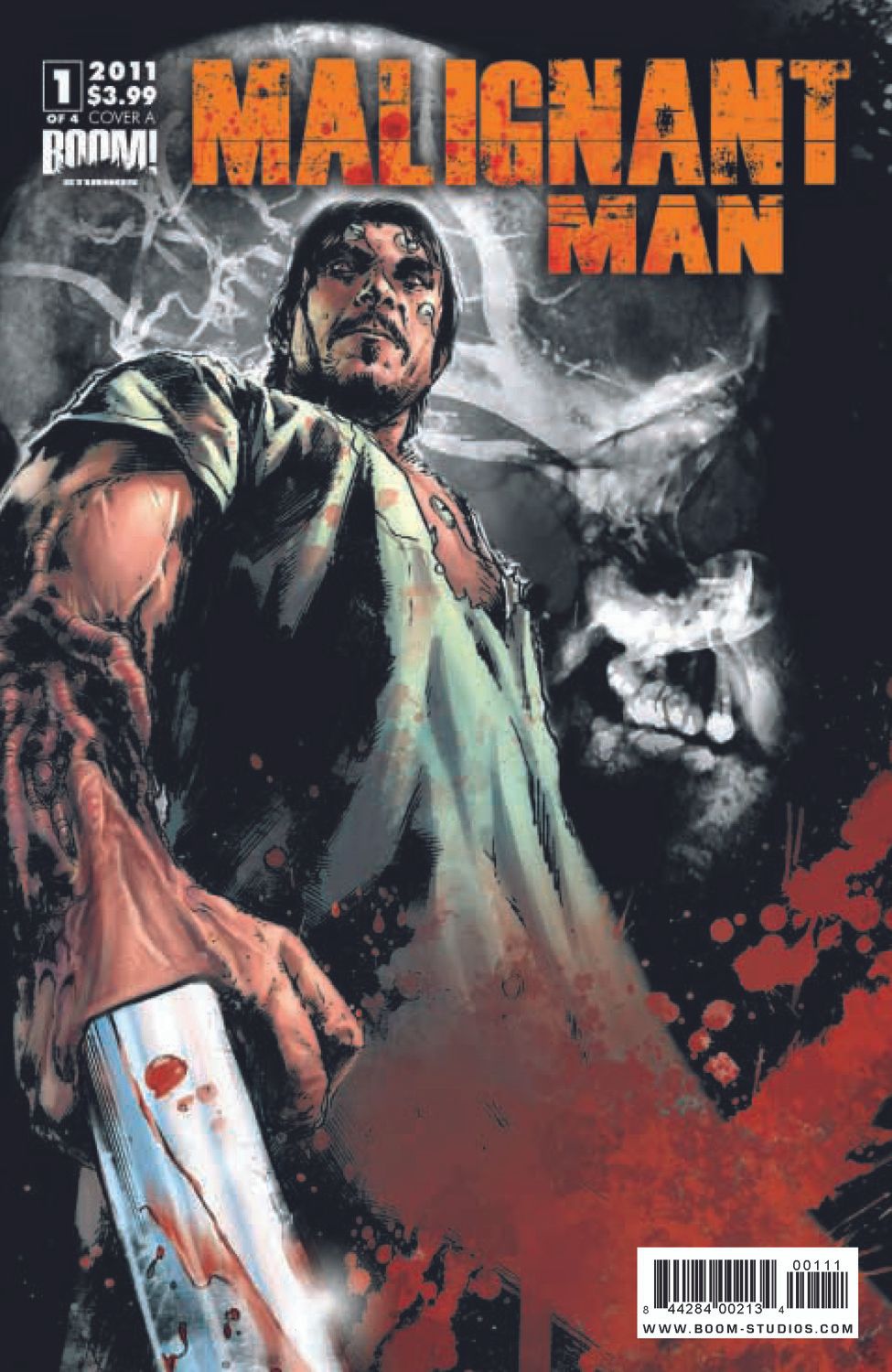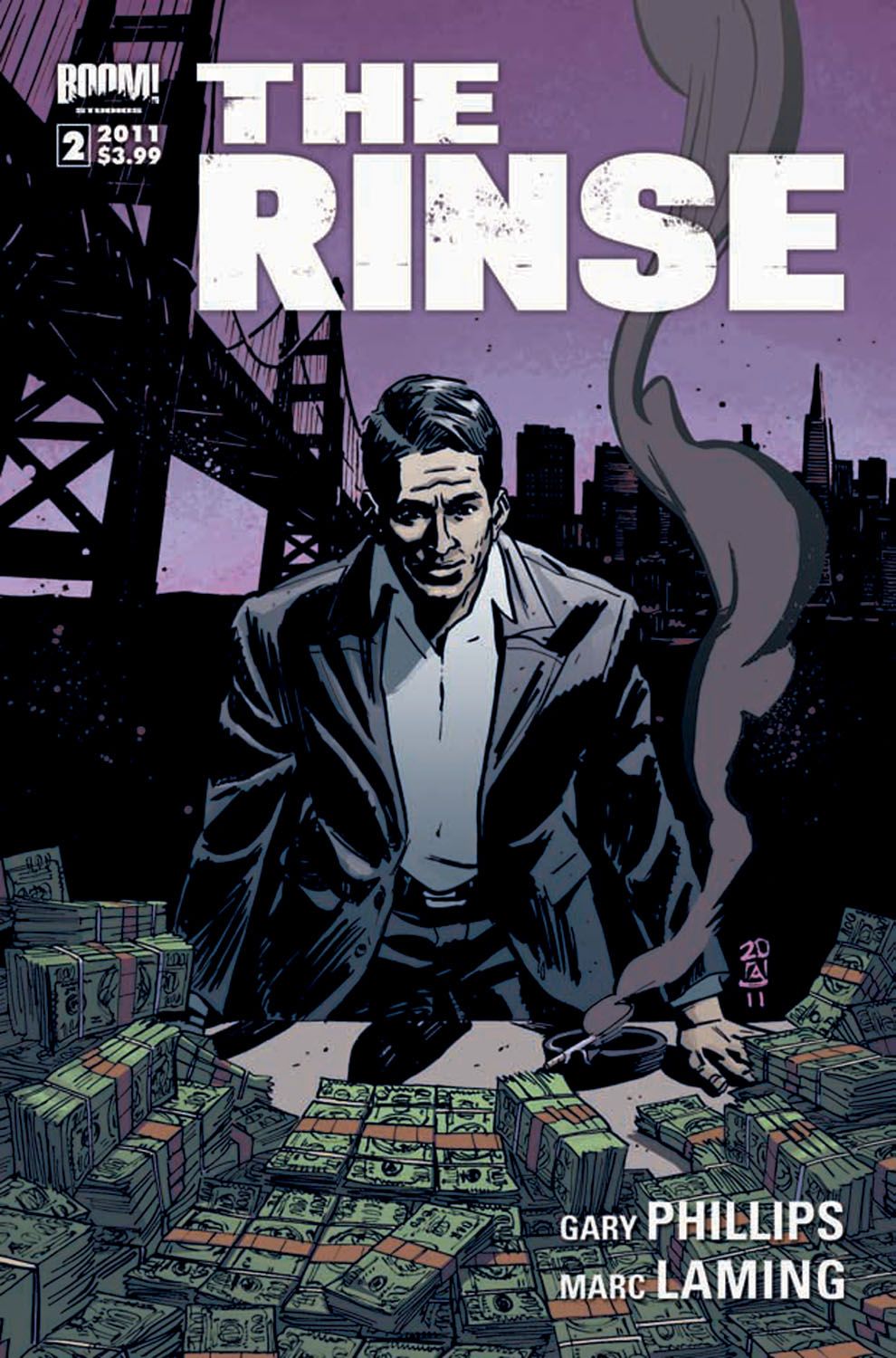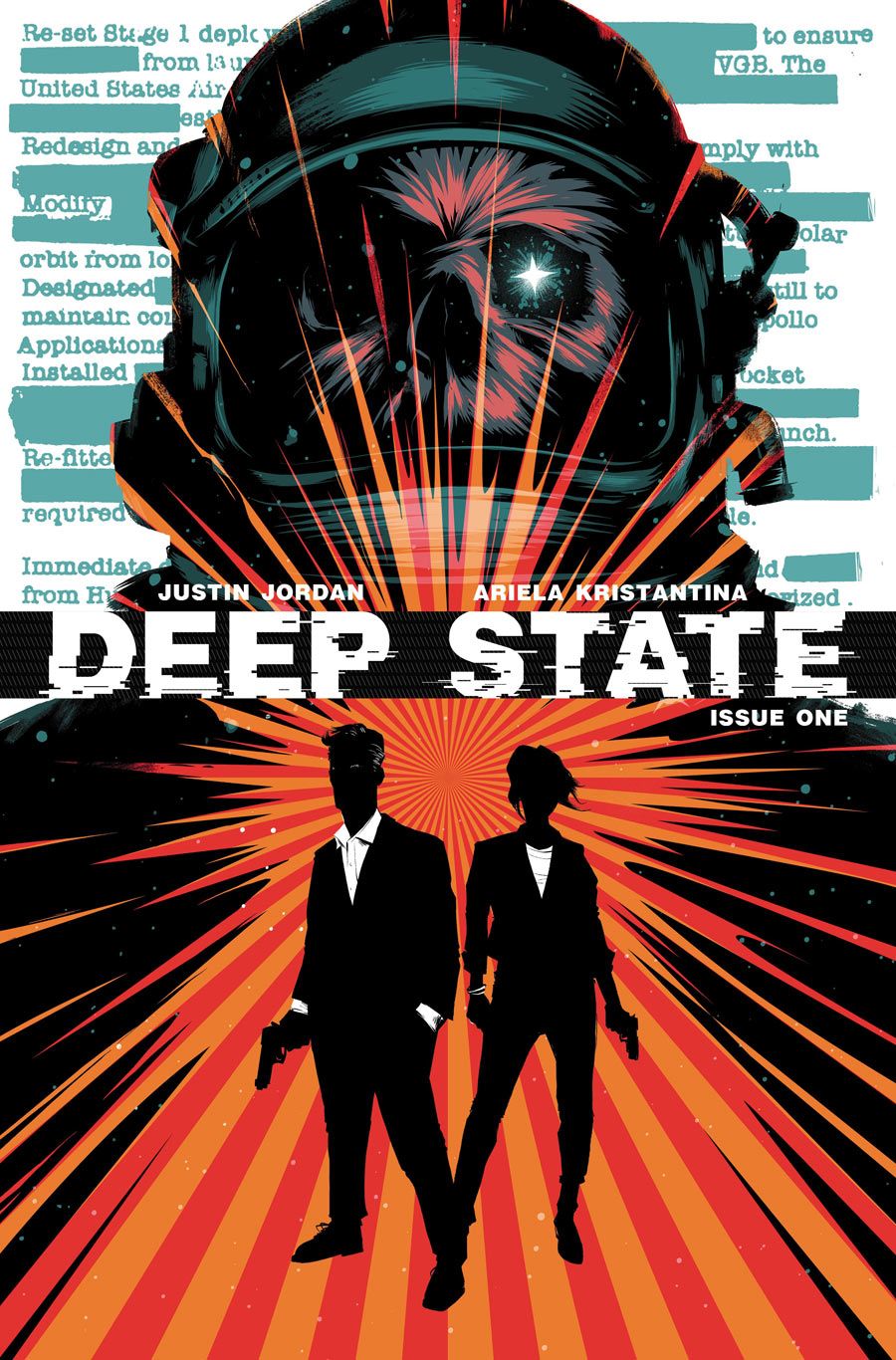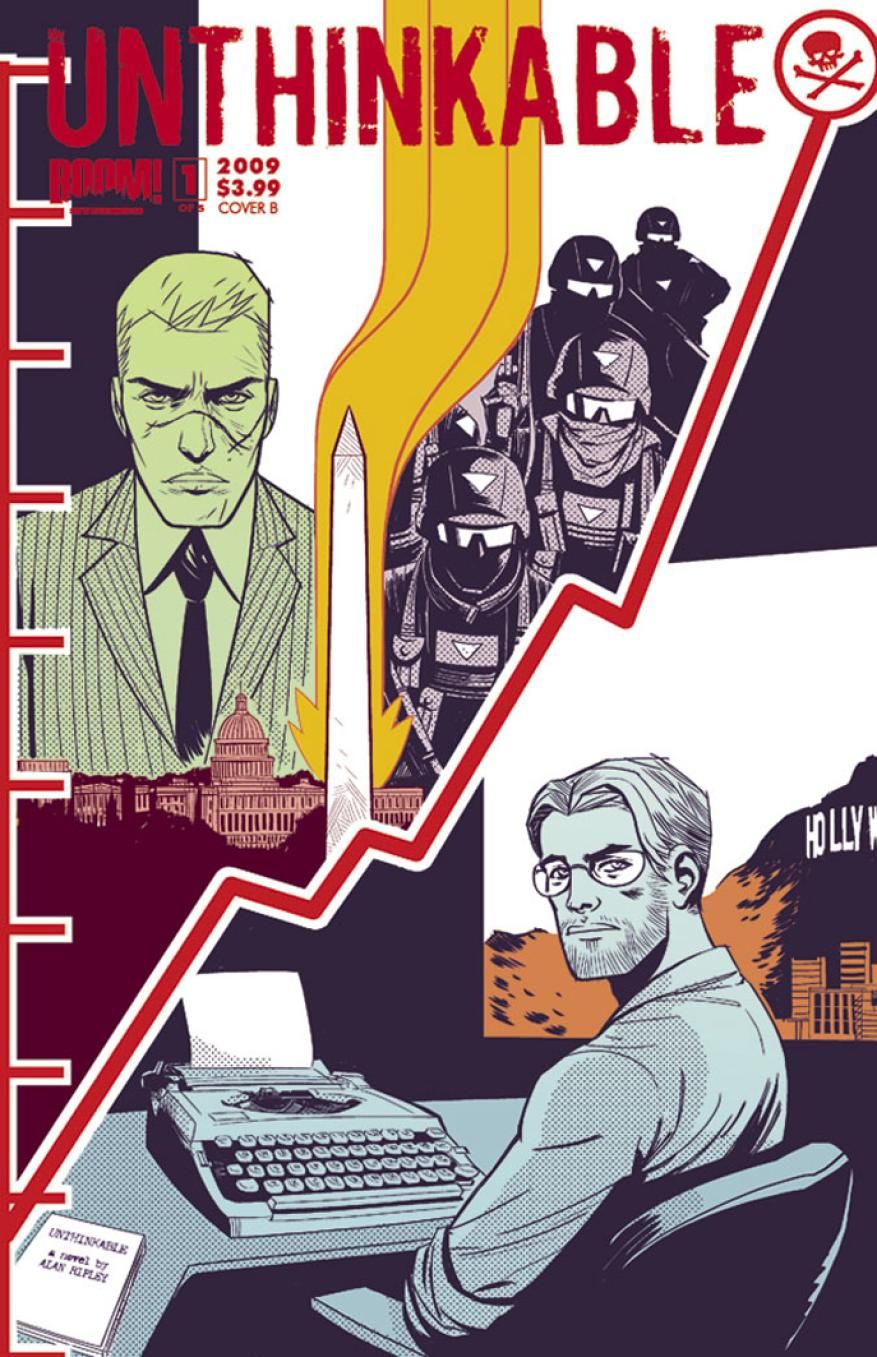Much like "Road to Perdition" or "A History of Violence," it's likely a good chunk of the $132 million worth of folks who saw Denzel Washington and Mark Wahlberg in "2 Guns" during its 2013 theatrical run didn't realize it was based on a comic. But the release of the action comedy, which wasn't overly "comic book-y" film in the stereotypical sense, had major implications for BOOM! Studios, the Los Angeles-based publisher of the original 2007 miniseries by Steven Grant and Mateus Santolouco.
"2 Guns" was the first filmed adaptation of a BOOM! Studios series, but appears it won't be the last. The movie was released in August 2013 by Universal, and two months later, 20th Century Fox announced that it had signed a first look film deal with BOOM!, giving the studio first shot at feature adaptations of its many controlled properties (BOOM! owns most of its non-licensed series, unlike many non-Marvel/DC publishers). Then, in August, BOOM! and Fox took their relationship to the next level, announcing a first look deal for television.
Earlier this year, BOOM! Studios CEO Ross Richie (who co-founded the company in 2005) and former Archaia editor-in-chief (now President of Development) Stephen Christy moved to a satellite office on the Fox lot, to better focus their attention on seeing that projects in development at Fox, like "Rust," "Unthinkable" and "Malignant Man," are produced. BOOM's Hollywood prospects aren't limited to Fox, either -- vampire crime series "Day Men," is in development as a feature at Universal, with screenwriter Will Simmons on board to adapt.
As the company nears its 10th anniversary, CBR News spoke with Richie for an in-depth interview on the many BOOM! projects in live-action development, how the past year-and-a-half of changes at BOOM! -- including the acquisition of Archaia -- have evolved the company, and the importance of proper representation for the source material.
CBR News: Ross, it's been a few months now since BOOM! Studios set up an office here on the Fox lot. How has your life and your job changed since moving over here?
Ross Richie: I look at BOOM! as having different columns, and these pillars, they hold the roof up, they hold the structure up, they hold the company together. The first pillar was editorial, and when I launched the company in 2005 the kind of books that I published, and the creators that I worked with -- whether it was Paul Azaceta or Rafael Albuquerque -- set the tone. I was the first editor-in-chief, even though I didn't inhabit that title because we were too small to have an editor-in-chief.
When [BOOM! Studios Editor-in-Chief] Matt Gagnon came into the company, we had a very shared vocabulary. As he came into the company and Mark Waid cycled out, it was a natural handing of the baton over to Matt, but you know, there's a lot of time and energy invested in getting on the same page, and sort of shared interest and sensibility. What are we going to publish? What is it going to look like? How is it going to work?
I've always been a big believer that you can have the world's greatest book, but if nobody knows it's there, it doesn't matter. It's heartbreaking for creators to be in a place where they're doing their best and the company is not getting the word out, and therefore the project fails because nobody told anybody. So that was a big core value: Let's not be obnoxious; let's not be that annoying marketing guy, but let's get the word out. That was always an objective for us.
When I called to set up BOOM's account at Diamond, [BOOM! Studios President of Publishing and Marketing Filip] Sablik was the one who picked up the phone. The position was called Brand Manager at Diamond. From origination, the first thing I solicited, Sablik saw it. We had extensive conversations for a year, year and a half that he was at Diamond before he went to Top Cow, so he knew the institutional values, the philosophy and approach that I had as far as storytelling and having a focus on story -- when I say that I don't mean "writer" focus, I mean the whole thing, synthesizing together.
So it was installing each pillar, very methodically and systematically, because unless you have good content, you can have the greatest business plan in the world but nobody cares, you can have great marketing and your concept sucks. Your content's got to be great.
My joke about Hollywood is, "publish a comic book, buy a safe, put the comic book in the safe, bury it in your backyard, and in the morning, Hollywood will find it." Having a comic book that garners Hollywood interest is very commonplace. It's how you control that process once it happens. What people want to do -- whether it's an agent, manager or producer -- is to get in there, get their hands on your thing, and then they want to run with it, and they want it to service their agenda. That's not good for us, and it's not good for our creators, so that process needed to be handled and modulated, carried through to its best execution. If you're a pretty girl, forgive the analogy, do you go out with the first guy that asks, or do you go out with the best guy that's interested? The person who matches your personality, and shares your values? A lot of comic book people go with the first person who asks. That's not the best fit, and that's not the best thing to make good material or make it into something, as opposed to development.
When the Archaia acquisition happened, I had known Stephen [Christy] for so long. Stephen was the editor-in-chief at Archaia -- we already had an-editor-in-chief. [Christy had already] sold movies, sold TV shows. So it's like, great, let's join forces. I'm a little bit further down the path than Stephen was in that I have a movie made, but he knows tricks that I don't know, and I know tricks that he doesn't know. Let's team up and push that vision forward. Our job is to shepherd this material through, doing the best that we can, with the resources that we have.
Speaking of the Archaia acquisition, along with the Fox deal, that was another significant development for BOOM! in 2013. How significant do you see that move overall, in terms of the various assets that it brought to the company?
I think it did a couple different things. I've long believed in having different imprints that are focused on different audiences -- I have a bit of a schizophrenic interest in different genres, so it creates something that is more reflective of my voice creatively, and what I am interested in doing. Archaia gave us a part of the territory that we maybe didn't inhabit. If BOOM! had done "Mouse Guard" I think people would have been like, "What's that?" It's not KaBOOM! and it's not BOOM! Studios -- what is it? It's Archaia. So it gives us that voice to be a bit more artistic with a capital A, and aspirational. Another color on the palette.
Now, there's a direct relationship: Stephen had sold "Rochester" and "Rust" to Fox, and I think Fox was interested in Archaia, but Archaia wasn't very big. BOOM! having a larger library -- and specifically, Fox said to us, "You've made a movie, so you understand the process that it entails, you're no longer freshmen," relative to the feature business. So that gave them the confidence to then say, "OK, the size of the library is 10 times what it was, progressively bigger," and, "experientially, you're much further down the road, so now we feel a level of comfort because we liked Archaia before, and we were interested in BOOM!, but these two things coming together makes sense." That definitely triggered the feature into the deal.
It's interesting about Archaia, because when from observers there were some initial fears that after the acquisition, that the Archia brand might get more integrated into BOOM! proper, and the distinction would evaporate. But the identity still seems important.
Hey, look, I worked at Malibu when they got bought by Marvel, and then they went away. Everybody was saying at that time, "Oh, Marvel's going to buy Malibu and shutter it," and they did. And comic book fans always do that. Comic book fans are perpetually heartbroken, because all of their fears are confirmed in all of these big business transactions. But there's a side of me that's very contrarian, and so I'm always looking for, "We're going to buy Archaia, we're going to reinforce what makes Archaia cool, we're going to give it discipline, and we're going to keep its creativity -- and we're going to grow it." So we're going to give you more of what you love. Better. And you can be skeptical all day long, and there is a big part of me on a contrarian basis that's like, "I'm going to prove you wrong." That's what I love.
We have been through so many iterations of this company. There was a period where we were the "Warhammer" company. "Warhammer" did $250 million worldwide, it was a huge brand, and we're this tiny company publishing "Warhammer." That went away and everybody's like, "Oh, BOOM's going to go out of business." And then we were the "Farscape" company. "Farscape" went away. And then Disney. Mark Waid's leaving the company. "Oh, BOOM's going to go out of business." I'm just like, "Bring it on." We are going to go through all these evolutionary stages and just get better at what we do. When we have opportunities like BOOM! Box to explore something that's different and unique and fun, were going to go do that. Sometimes it works, sometimes it doesn't. You know? You never bat a thousand. But it's such a gift to me to be in a place where you can explore that kind of creativity. My instinct is never to be conservative because it's such a squander of an opportunity if you are. Hopefully we're fiscally conservative, but we're creatively experimental.
You're working out from this office, separate from publishing, and obviously you've spent a lot of time dealing with these projects in development for film and TV. How involved are you still with the comic book side? Is it something that is still a big part of your day to day?
Yeah, absolutely. That's something that is a concern for everybody. I think when you look at my team, Matt Gagnon's editorial chops are pretty unimpeachable. I'll stand by that. Matt's creativity is something that is fantastic. And Sablik is well known in the business for being very talented at what he does. You don't get that team by micro-managing those guys.
But at the same time, one of our secrets is that the team is more powerful than the individual. We're intensely collaborative about what we publish, the creators we work with -- meetings with Grant Morrison are meetings that the team takes. Because, first of all, we want to show the commitment, across all channels and all aspects of the company; where it isn't that the left hand doesn't know what the right hand is doing. But we also know that all these heads are better than one.
One thing that I think is interesting when you look at the list of projects from BOOM! that are currently in development -- They weren't the biggest hits as comics, yet they're at a stage where they could potentially reach a much larger audience. That's sort of the same pattern as "2 Guns." That wasn't a gigantic hit within the comics world, and clearly it was a successful movie. I know some of the BOOM! comics currently in development came out back in 2007 and may have seemed like they came and went, but now they could potentially be a major feature film. How important is that to you, seeing the potential in releases in the library that didn't have the hugest of impacts in its original life, but could go on to be something much bigger?
I worked at Malibu, and they published "Men in Black." The original "Men in Black" sold 7,000 copies. And we all know "The Crow" was the indiest of indie comics. I would be surprised if that print run of the original "Crow" is more than 3,000 copies. "History of Violence" is much the same way. "Road to Perdition" is much the same way. And when you start to look at things that are not superhero books for movies -- "300" always did well, but Frank [Miller] is Frank is Frank. He's sort of a special case.
I always knew that comic book sales don't correlate to box office, and I was actually having this conversation with Fox when we were negotiating the deal and I pointed out to them that the second issue of Mark Millar's "Kick-Ass" outsold "Thor" that month. The box office for "Thor" outperformed "Kick-Ass." "Kick-Ass" was never designed to be the big global box office [hit] "Thor" was, so it's kind of unfair to compare the two. The first ["Kick-Ass"] was successful enough to garner a sequel, and it's a great comic book and it's a really fun movie, but it just shows you, that in the direct market, those sales don't follow what a box office represents. I am blissfully ignorant of all these things, because as the guy who greenlit all these comic books, I love them. So I will talk your ear off about how great they are. Even if a third party might look at it objectively and say that they've creatively failed, I can't see it, because they're my children and I love them. It's fun to advocate for them and to be their greatest fan, and to carry that energy into a different environment and get people excited about them.
Let's take a look at some of the movie and TV projects in development, to get some updates and comments from you, starting with the latest. Justin Jordan and Ariela Kristantina's "Deep State" was announced late last month as in development as part of the first look TV deal with Fox, and that was just a couple weeks after the first issue was released -- that's some Mark Millar-esque turnaround time from comics release to Hollywood deal. Did you always see that type of potential in the series?
It's always tricky, because I love everything that we do, and I will ardently pitch every single thing as being a great project. At the end of the day, I write the check for it, and I greenlight it. They all mean so much to me. With this particular project, it has a really great origination point. We were already in business with Howard Gordon, and Hugh Fitzpatrick, who works for Howard, is doing "Unthinkable" [with us]. When "Deep State" was announced, I put it on my Facebook wall. His office on the Fox lot is maybe 80 feet from our office on the Fox lot. He saw my Facebook wall, got up and walked over and stuck his head in our office and was like, "What's going on with this?" We, of course, love it, but very little of it had even been written at that point. So we just talked to him about what we thought the potential of the project was and the different directions it could go, and it came together.
"Deep State's" an example of when things click with all of this. The thing that makes BOOM! unique is being on the lot, right there, in the offices of the people who make the movies and make the TV shows. You just have a much better shorthand. It's like you go to work at the same place. You see each other in the hall, you see each other in the parking lot. Literally, I park my car next to Bryan Singer's. It's crazy.
The other title announced that same day as also in-development with Fox TV is "The Rinse," which was released in 2011, so it's taken little longer to get to this point.
I pitched "The Rinse" to showrunner Mick Betancourt. It's a story about money laundering. The creator, Gary Phillips, is a student of noir and hard-boiled kinds of stories. I've always loved the idea of, here's this guy that doesn't really exist in conventional society. He lives in this underworld. If you did that job, if people knew that you did it, it would make you a target for them to steal that money. If you're laundering $20 million, and taking a $2 million fee to do it, it's something that you do in secret, and you have to really police the relationships that you have. I was always interested in this "invisible guy" that exists in society -- and I also have been told some amazing stories as we worked on the project about real money laundering in Los Angeles. Around the time that we were working on this, there was a $160 million bust that happened in downtown Los Angeles, in the Garment District. They were using clothing and garment stores as fronts for money laundering operations.
The way that we pitched it was, have you ever been on Ventura Boulevard and seen two nail salon places next to each other, and wondered, how in the world can these businesses be so close to each other and not cannibalize each other's business? The answer is, they're fronts for money laundering.
It's a cool world, and television is in a place now that it deals with a lot of interesting characters -- our character is a hero, but he's more of a Robin Hood than he is a Captain America.
Moving to features a bit, "Foundation" is in the works at Fox as of August. What's the current status on that one?
Well, we went in, we pitched the studio Evan [Daugherty]'s story, and the studio bought it, and so Evan is in process of writing the script right now.
Also at Fox is "Malignant Man" with James Wan, a comic he co-created for BOOM! in 2011.
James is insanely creative. What's cool with what James is doing right now is, he's the "Saw" guy, the "Conjuring" guy, and he's the "Insidious" guy. Which are all horror movies. But now that he's doing "Fast and the Furious," I think people are starting to look at him as, "What can he do besides horror?" What's exciting about "Malignant Man" is, it's very much an action story more in the vein of the "Matrix," and its his ability to flex those muscles. You know, "Fast and the Furious" is a huge franchise that already had its stars, already had its tone and its feel. With this, he can come in and it's his idea, it's his passion project, and he can originate it from the ground up.
And "Rust" has been at Fox for a while.
We are very, very close to getting that movie made. It's very exciting. That's really cool to see. There's a high-level discussion going on right now about that.
You were talking about being an advocate for comics creators on the Hollywood side, but to use "Rust" as an example, it was both written and illustrated by Royden Lepp -- is he involved in these conversations? To what level is he a presence in these types of discussions?
Royden has been involved in the conversation from the beginning, and I think he has been very supportive of the choices we have made, and the direction that we've gone. It's a fine line relative to, it's one thing to draw the comic book, write the comic book, create the comic book. You look at it from the studio perspective, which is, "OK, you want me to spend how much money to make this?" So there's that moment where it's riding that line between, the studio needs to be empowered to go make movies, because that's what they do. And we're talking about one of the six, seven entities in the world that can make a movie at this level. There is an arena of expertise, as much as you and I can sit and go, "Eh, they screwed this up, they screwed that up."
It's always a fine line of keeping the creator informed about what's going on, but at the same time empowering the studio to do their thing, and we're the producer that's in the middle, that is shaping the process and synthesizing all of this together into a whole. That's the trick.
"Rochester" has been in development at Fox 2000 for a while, though that book hasn't actually come out yet. What can you say about that one?
Aline Brosh McKenna is the screenwriter who wrote "The Devil Wears Prada," and she is doing the live action "Cinderella" movie that Kenneth Branagh is directing. She attached herself to "Rust," and when that sold, she fell in love with the graphic novel creation process. She brought an original idea to Archaia, which was "Rochester." That was right after "Tale of Sand," and so Ramón [Perez] came on to "Rochester" to draw it. Ramon just got started, because he had some commitments that were preexisting.
"Unthinkable" has been at Fox TV for more than a year -- another comic that had been around for a few years before it was publicly apparent it was picking up this kind of interest. What can you say about that one?
The showrunner is Ben Queen, who wrote the pilot. Howard Gordon is the guy that we're producing it with, who's one of the creators of "Homeland," and has a history of "X-Files," "Angel" and "24." There's a lot of excitement around it.
Outside of Fox is "Insurrection" at Paramount, which has been there for a couple years with Blake Masters, writer of "2 Guns." Any update there?
No new development, but we're kicking up some stuff.
To tie some things together, BOOM! is at an interesting place, because you can say there are some comics won't be a movie or a TV show, and are only meant to be comics, but at the same time, knowing that BOOM! is in this situation right now is something that you can't just ignore. Do you find that it's helped in the last few months for BOOM! to attract higher profile creators? It's been revealed in the past few months that BOOM! is working with Grant Morrison and JG Jones, to name two.
Everyone that's a creator is sharply aware that something could happen. What if they have the next "Walking Dead"? What if they have the next "Wanted"? They want to feel like, do you have proficiency in this area? Can I trust you? Do you know what you're talking about? Do you have experience? Do you know how this works? And there are people who do and there are people who don't. A lot of times, a publisher wants a role in that, and sometimes they're not qualified for it. We hear it from the creative pool. They come to us and say, "This particular entity wants this particular thing, and I don't understand, and it feels weird. And what do you think about that? Explain to me what you do and how does that work, and how can I feel like I have the best team that's going to be somebody that's going to unlock the potential of what we are doing?"
Filip Sablik's joke is, "There's two kinds of comic book companies: There's the people who say that they have a Hollywood strategy, and then the people who claim that they don't, but they're liars." The interest from Hollywood is so aggressive, if you're not proactive, then you're going to get behind the 8-ball. I can't speak to why creators bring material to us, other than they like what we are doing, and they believe in the company. But, I think we would not be able to work with the Grant Morrisons or the J.G. Joneses unless we had demonstrated that we are trustworthy and can handle those aspects of the business.

On the other side, the Fox/BOOM! deal can lead to the fairly common worry from fans: The idea that comics are being made just to turn them into movies.
Here's the fan fear. The fan fear is, "You don't like me, you want to date my sister." "You don't want to make a comic book, you want to make a comic book that you go sell to Hollywood." "You don't want to talk to me, you want to talk to Hollywood through me. And you want to use me to get to Hollywood."
I understand where that fear comes from. Comic book fans have been heartbroken and disappointed, over, and over, and over again. The things that we love get cancelled; the companies that we love go out of business. The initiatives that we believe in, overnight, get changed. I understand where that heartbreak comes from. But I think at the end of the day, what you have to do, is you have to look at what's actually happening, not what your fears are. And if a creator is putting out a cool comic book, they're putting out a cool comic book. And any of those other things has nothing to do with, "Did you buy this comic, did you read it, did you like, is it cool, do you want to buy the next issue?" My job is to worry about that, and if we do that, we stay around. We grow, we get bigger.

